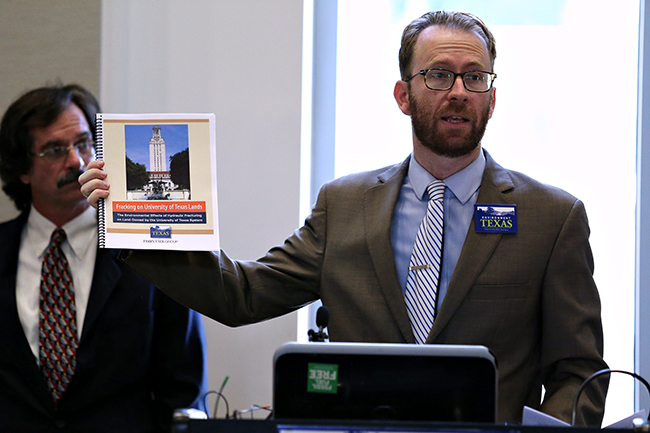Oklahoma experienced only two earthquakes of magnitude 3.0 or greater in 2008. Last year, the state experienced 890. Scientists believe the injection of wastewater fluid from oil and gas production has caused this stark increase in earthquake occurrences, and hydraulic fracturing, more commonly known as fracking, is ultimately responsible for this increase in wastewater fluid. But as fracking companies continue to debate with the public on the safety of their operations, it is imperative that they respond to emerging data in a truthful way to reduce misguided consumer fears that hinder cooperation.
The United States Geological Survey recently released a report documenting areas that may experience damaging earthquakes in 2016. For the first time, they included the risks associated with earthquakes caused by humans rather than natural activity. Although Oklahoma is at the highest risk of these earthquakes, small areas in Arkansas, Colorado, Kansas, New Mexico and Texas made it onto the projections as well.
While it would make sense to ask fracking companies to stop or control their processes in light of emerging evidence, the limitations of scientific studies make blaming them particularly difficult. Scientists can only show a correlation between wastewater disposal and earthquakes. As a result, companies can rely on the heinous defense that no causal relationship can be made, no matter how strong the correlation.
Environmental science freshman Elsa Toskey said she believes the pursuit of profit incentivizes petroleum companies to be dishonest about their procedures and associated risks.
“I think fracking’s profitability impairs judgment of the government and of petroleum companies,” Toskey said. “There are many questions about its impacts on groundwater contamination and seismicity that have yet to be thoroughly answered.”
However, the burden falls as equally on the public to approach emerging data in a way that is fair and moderate. The earthquakes in Oklahoma caused by wastewater injection have not matched the intensity of deadly earthquakes in natural hotspots such as California and Japan. If the public attacks fracking companies with a “sky-is-falling” mentality, their claims can be easily dismissed or debunked in a way that prevents any real progress.
In addition, asking these companies to completely stop their operations is a failure to see the benefits the technology brings. Fracking has greatly improved the U.S. economy by generating jobs and reducing our dependence on foreign oil. Completely banning fracking operations would put an end to these benefits.
Environmental science senior Leslie Jordan said she thinks fracking has been a positive addition to the U.S.
“Fracking is tied to national security,” Jordan said. “It increased the size of U.S. [oil] reserves, which allows the country to be less reliant on foreign oil. It’s poorly regulated but overall is a good thing.”
With all factors considered, fracking has benefits we should utilize, but public concerns from anecdotal and scientific evidence must also be addressed. Perhaps we should limit wastewater disposal to certain areas or prioritize a quicker shift to renewables instead of attacking each other with extreme arguments. But in order to reach reasonable compromises, fracking companies and the public must maturely discuss the issue.
Chan is a journalism and environmental science freshman from Sugar Land. He is a senior columnist. Follow him on Twitter @BenroyChan.





















